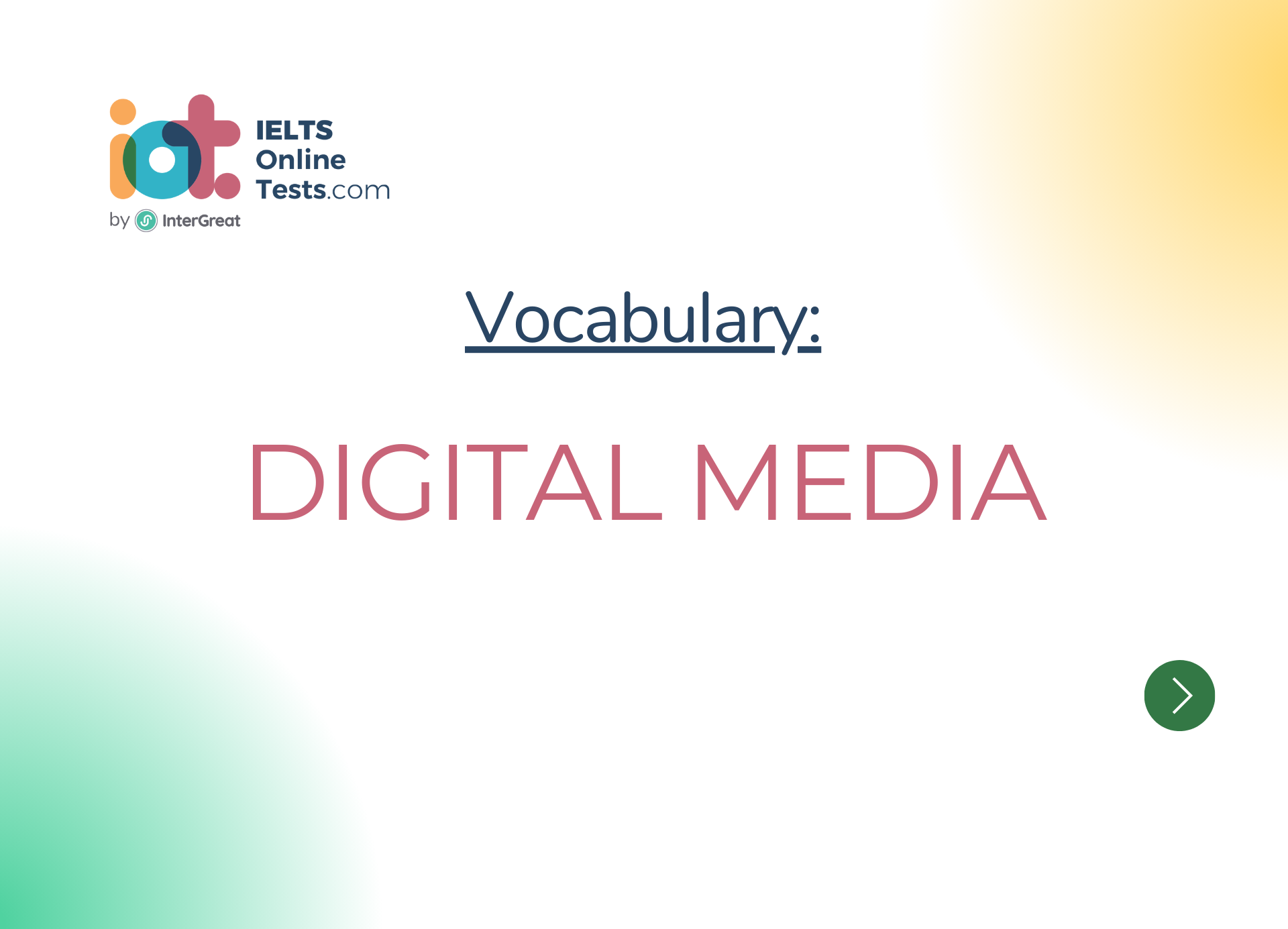
Digital media
Here is a detailed list of vocabulary related to digital media, specifically tailored for IELTS band scores 6.5-8.0:
Digital Media:
- Definition: Content that is stored in digital formats and can be transmitted over the internet or computer networks.
Internet:
- Definition: The global network of interconnected computers and servers that allows users to access information and services online.
Social Media:
- Definition: Online platforms and websites that enable users to create and share content, connect with others, and participate in social networking.
Website:
- Definition: A collection of webpages hosted on the internet, accessible through a unique domain name.
Mobile Application (Mobile App):
- Definition: Software designed to run on mobile devices like smartphones and tablets, providing various functions or services.
Online Content:
- Definition: Information, multimedia, or other materials available on the internet.
Digital Marketing:
- Definition: Advertising and promotion of products or services using digital channels, such as social media, search engines, and email.
E-commerce (Electronic Commerce):
- Definition: The buying and selling of goods and services over the internet.
Cyberspace:
- Definition: The virtual environment of computer networks, where digital interactions occur.
Streaming:
- Definition: Transmitting data, such as audio or video content, over the internet in real-time, allowing playback without downloading.
Webinar (Web Seminar):
- Definition: An online seminar or presentation conducted via the internet, allowing participants to interact and ask questions in real-time.
Podcast:
- Definition: A digital audio program or series that can be downloaded or streamed from the internet.
Viral Content:
- Definition: Online content, such as videos, articles, or memes, that spreads rapidly and widely across the internet through shares and reposts.
User-generated Content:
- Definition: Content created and shared by users, often on social media platforms and online communities.
Influencer:
- Definition: An individual with a large and engaged following on social media, capable of influencing their audience's opinions and behaviors.
Data Privacy:
- Definition: The protection of personal information and data from unauthorized access or usage.
Cybersecurity:
- Definition: Measures and practices taken to protect computer systems and data from digital attacks and breaches.
Artificial Intelligence (AI):
- Definition: The simulation of human intelligence processes by computer systems, enabling machines to learn, reason, and perform tasks autonomously.
Augmented Reality (AR):
- Definition: Technology that overlays digital information or virtual objects onto the real-world environment, typically viewed through a mobile device or AR glasses.
Virtual Reality (VR):
- Definition: Computer-generated simulation of a three-dimensional environment, providing an immersive experience for users.
Algorithm:
- Definition: A set of rules or instructions used by a computer program to solve problems or perform specific tasks.
Data Analytics:
- Definition: The process of examining and interpreting data to extract meaningful insights and patterns.
Cloud Computing:
- Definition: The delivery of computing services over the internet, such as storage, databases, software, and processing power.
Machine Learning:
- Definition: A subset of artificial intelligence that enables computers to learn and improve performance from experience without explicit programming.
Data Visualization:
- Definition: Presenting data and information in graphical or visual formats to facilitate better understanding and analysis.
Digital Transformation:
- Definition: The integration of digital technologies into various aspects of an organization or society, leading to significant changes in processes, services, or culture.
Internet of Things (IoT):
- Definition: The interconnection of everyday objects and devices to the internet, allowing them to collect and exchange data.
User Experience (UX):
- Definition: The overall experience and satisfaction of users when interacting with digital products or services.
User Interface (UI):
- Definition: The visual elements and design of a digital product or application that users interact with.
Cyberbullying:
- Definition: The use of digital communication tools, such as social media and messaging apps, to harass, intimidate, or threaten others.
Remember to practice using these vocabulary words in context to enhance your language skills and prepare for your IELTS exam effectively. Good luck!




